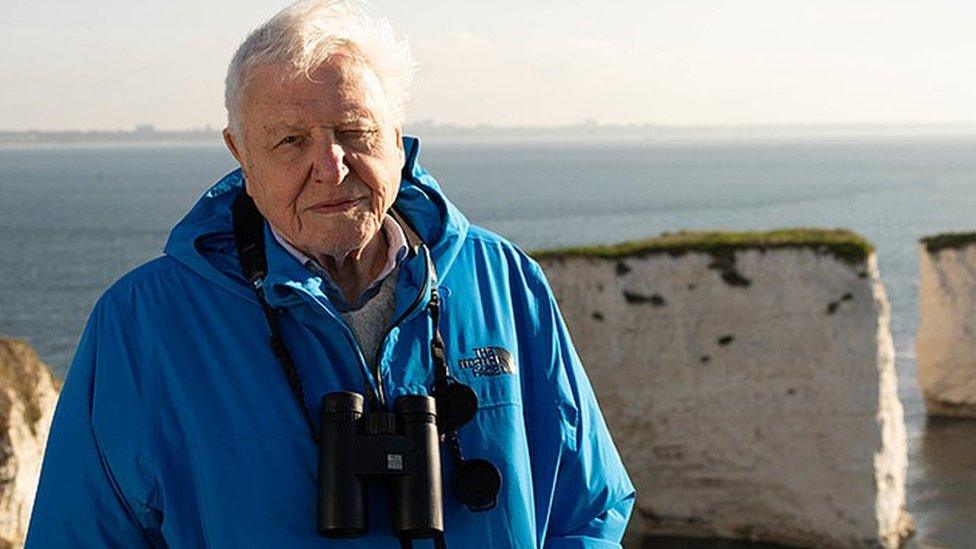Sir David Attenborough show looks at puffins' plight
- Published
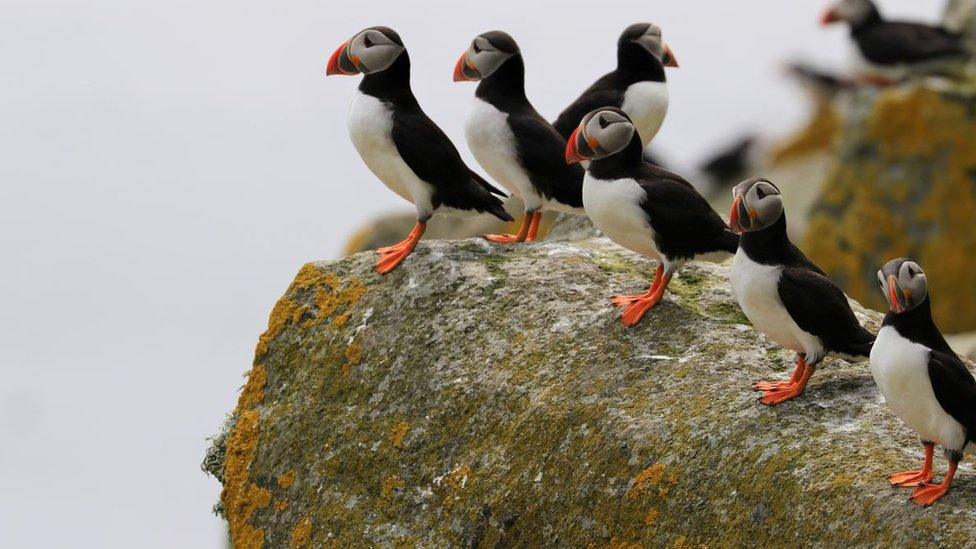
The challenges faced by British seabirds including puffins featured in the first episode of Sir David Attenborough's new series
Puffins at Bempton Cliffs in East Yorkshire have been affected by threats to their nests, food supply and climate change, according to the RSPB.
The challenges faced by Britain's seabirds were explored in the first episode of Sir David Attenborough's series Wild Isles on Sunday.
Rising sea temperatures make it tougher for birds to find food, the RSPB said.
Dave O'Hara, site manager, said seabirds were "the most threatened group of birds in the world".
He said the UK's puffin population was predicted to reduce by 90% by 2050 if global temperatures continued to rise.
"Lots of our seabirds here at Bempton Cliffs have been affected," Mr O'Hara said.
The RSPB says rising sea temperatures mean the fish that rare birds feed on swim deeper in search of cooler waters, making it more difficult for birds to find them.
The charity said these challenges meant birds produced fewer chicks each year.
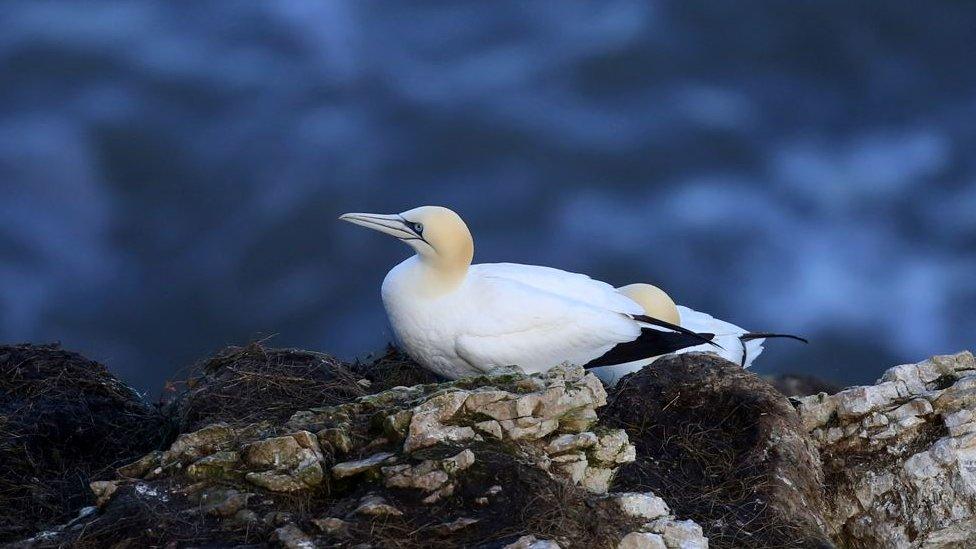
The RSPB's seabird research team carries out a seabird monitoring programme along the cliffs at Bempton every year
Poppy Rummery, visitor experience manager, said: "The Flamborough and Filey Coast Special Protected Area supports the largest mainland seabird colony in England.
"The 5km of sea cliffs are internationally important because of the huge numbers of seabirds, including puffins, gannets, kittiwakes, guillemots and razorbills, which raise their young here in spring and summer."
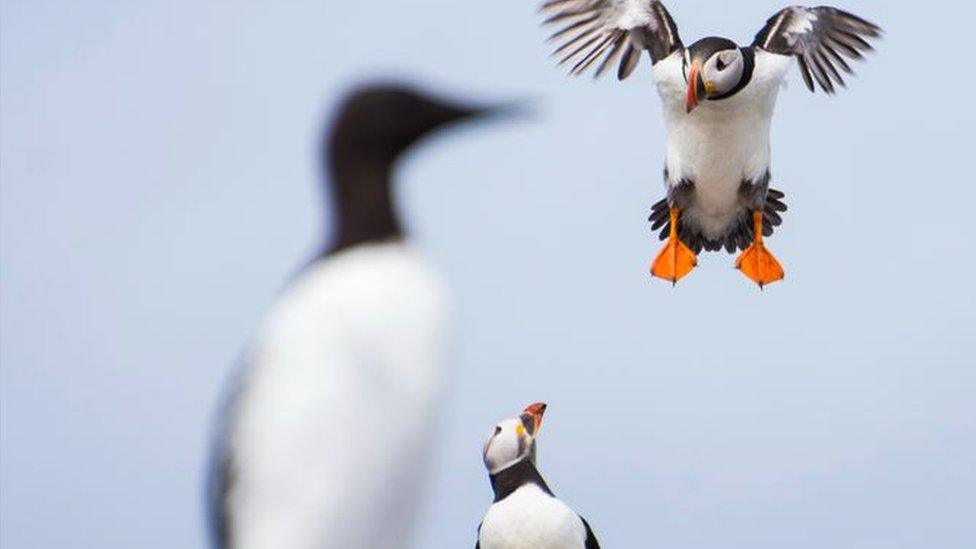
RSPB conservationists and volunteers are working to protect seabirds at Bempton Cliffs
The Wild Isles series explores the wildlife of UK and the first episode, which aired at 19:00 GMT on Sunday, is available on BBC iPlayer.

Follow BBC East Yorkshire and Lincolnshire on Facebook, external, Twitter, external, and Instagram, external. Send your story ideas to yorkslincs.news@bbc.co.uk, external.
Related topics
- Published13 March 2023
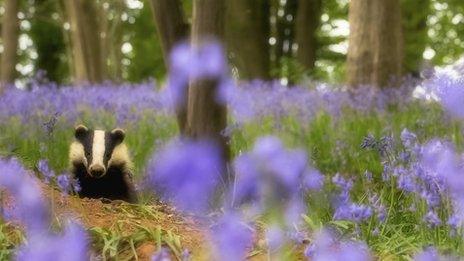
- Published7 March 2023
- Published6 March 2023
